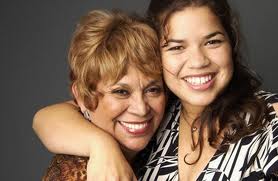FREEWAY (1996)
(Note: If this post is your first encounter with my
Feminist Film Moment postings, kindly read the rules of
engagement before reading, commenting, etc.)
Written and Directed by Matthew Bright
Cast: Reese Witherspoon, Keifer Sutherland
Cast: Reese Witherspoon, Keifer Sutherland
Synopsis: Little Red Riding Hood and Reese Witherspoon like you’ve never seen
either before.
Moment: Vanessa
gets the upper hand on her would-be rapist.
TRIGGER WARNING: VIOLENCE AND REFERENCES
TO SEXUAL ASSAULT
Rationale:
To hell with waiting on some woodsman!
Finally a version of Little Red Riding
Hood where she fights back against the big bad wolf and prevails! Vanessa
is on her way to her grandmother’s house when she hitches a ride with Bob who
unbeknownst to her is the Freeway Killer. He gains her trust, makes her reveals
intimate details of her life and then turns on her. But homegirl’s not going
out like that. There’s another great scene later where Vanessa revels in how
she whooped that rapist ass, but you’re going to have to get your hands on the
flick to see that. If you like your humor dark and your fairy tales edgy,
you’ll enjoy this flick.
Today's Reese Witherspoon's birthday. Happy birthday, Reese. Thank you for all the Feminist Film Moments. If you look at her career, there's quite a few of 'em.
Today's Reese Witherspoon's birthday. Happy birthday, Reese. Thank you for all the Feminist Film Moments. If you look at her career, there's quite a few of 'em.
